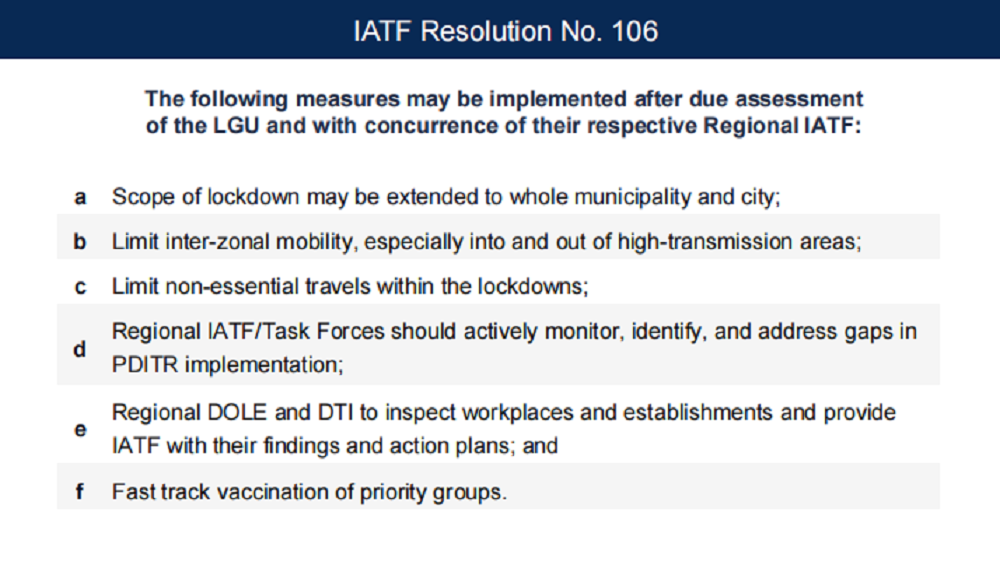The national government on Saturday ordered the enhanced implementation of Prevent, Detect, Isolate, Treatment, and Rehabilitation (PDITR) in the Cordillera Administrative Region (CAR), Region 3, and the provinces of Batangas and Quezon amid the surge of COVID-19 cases.
The directive under IATF-EID Resolution 106 to immediately implement the strengthened measures seeks to limit mobility and to cut delays in the detection and intervention of COVID-19 cases.
Local government units (LGUs) of the said areas may implement the expansion of lockdown coverage and may impose limitations on interzonal movement and non-essential travels.

“Kailangan ma-address ng Regional IATF ang mga gaps sa PDITR implementation. Kailangan inspeksyunin ng DOLE at DTI ang workplaces at establisyemento at ibigay sa IATF ang kanilang findings at actions plans (The Regional IATF should address the gaps in the implementation. DOLE and DTI must inspect workplaces and establishments and will submit findings and action plans to the IATF),” Presidential Spokesperson Harry Roque elucidated.
The national government also directed to expedite the vaccination of priority groups in the said areas.
In terms of the national vaccination program, the IATF-EID adopted the recommendation to simultaneously implement the vaccination of Priority Group A1 composed of health workers and Priority Groups A2 and A3 composed of senior citizens and persons with comorbidities as “quick substitution list.”
The instructions were included in the resolution declaring the reversion to enhanced community quarantine of Greater Metro Manila Areas from March 29 to April 4.
Read more: Greater Manila Area now under ECQ
Malacañang clarified that groceries and markets will remain open and urged the public to do away from panic buying. Although restrictions on mobility were imposed, Sec. Roque said quarantine passes will not be required as the lockdown will initially last for a single week.
